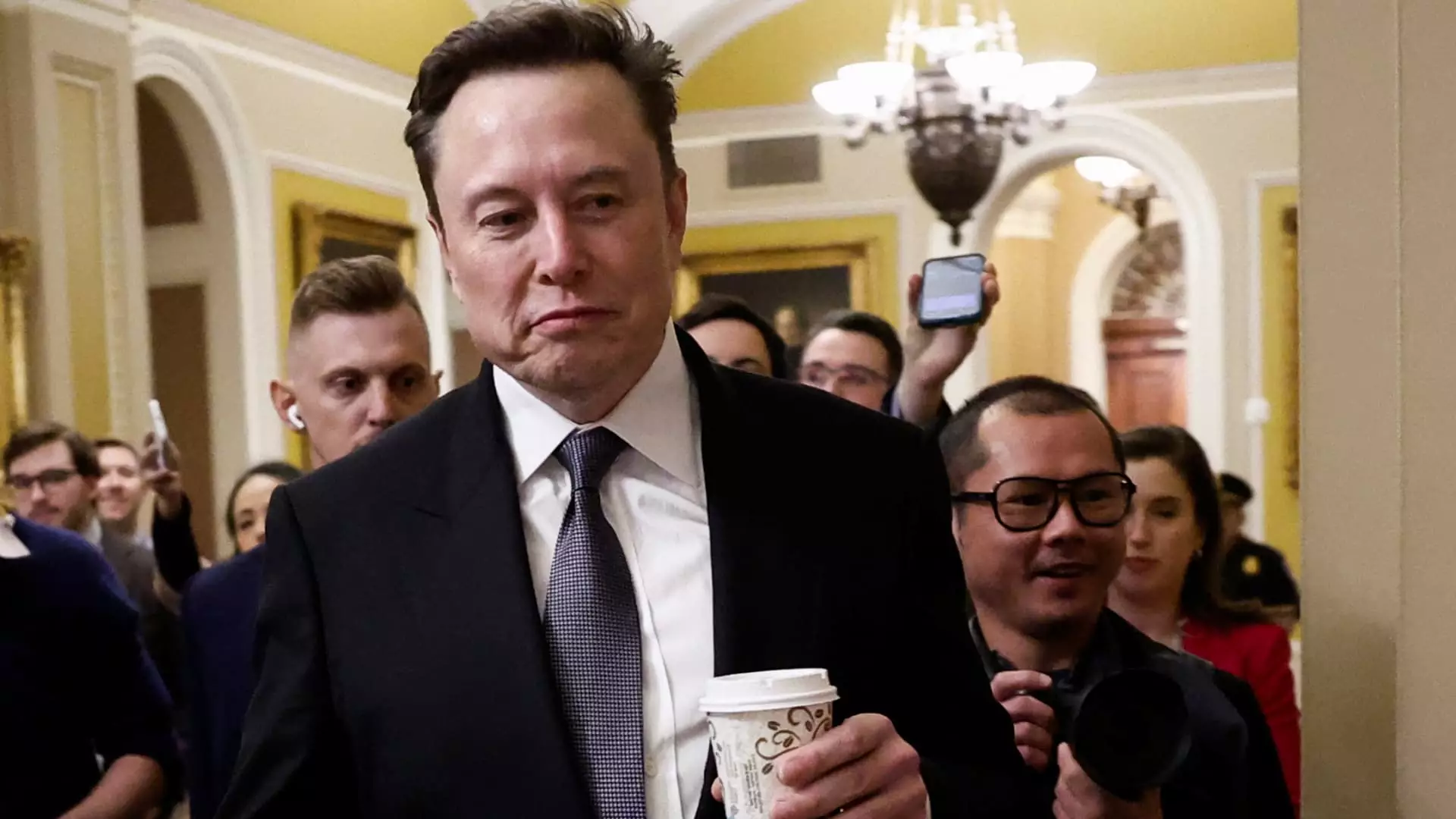The recent developments in U.S. government funding, intertwined with the dynamics of international investments, reflect a significant intersection of politics, commerce, and security concerns. The situation has been brought into sharp focus by leading Democrats Jim McGovern and Rosa DeLauro, who have raised alarms over the influence of tech mogul Elon Musk in shaping government policy—specifically regarding foreign investment regulations in China. This interplay not only reveals the tensions within American politics but also underscores larger global economic realities that necessitate scrutiny.
In an effort to unite Democrats and Republicans for a common cause, a bipartisan government funding bill was proposed with provisions aimed at regulating U.S. investments in foreign markets, particularly China. McGovern and DeLauro criticized their Republican colleagues for yielding to Musk’s interests, effectively derailing a critical legislative measure. This bill, they asserted, would have fortified U.S. technological superiority, particularly in cutting-edge industries such as artificial intelligence and quantum computing while retaining jobs domestically. The failure to move forward with this bill has ignited a debate about the extent of corporate influence over public policy—a debate worth exploring, especially in light of Musk’s high-profile ventures in China.
Tesla stands out as a unique player in the American automotive sector, being the only significant automaker to operate a factory in China without requiring a local joint venture. This strategic position allows Tesla unprecedented access to the lucrative Chinese market, where it has recently expanded operations by establishing a new battery plant. However, McGovern’s remarks highlight a glaring concern—Musk’s business strategies may be compromising U.S. national security interests. According to McGovern, Musk’s reliance on maintaining positive relations with the Chinese government poses a threat to American technological innovation and job retention.
Moreover, Musk’s ambitions extend beyond automotive production; he also aims to develop self-driving vehicle technologies and AI data centers in China, initiatives that not only bolster his business model but also raise pressing questions about data security and technological espionage. This balances precariously on the tightrope of international diplomacy, particularly given the adversarial nature of U.S.-China relations.
The situation is further complicated by Musk’s ownership of SpaceX and its Starlink satellite service, which has been reported to withhold internet access in certain geopolitical scenarios at the behest of both Chinese and Russian authorities. Such moves elicit serious ethical questions about the responsibility of corporate leaders in potentially censoring information or curtailing freedom due to international lobbying pressures. These actions suggest that the lines between corporate interest and national loyalty may be increasingly blurred, feeding into a larger narrative about the responsibilities of billionaires whose decisions could shape global communications and security frameworks.
Musk’s influence extends not only into the corporate realm but also deeply into political circles, particularly his relationship with former President Donald Trump. Musk’s strategic support for Trump’s campaigns has allowed him unprecedented access to federal discussions and has raised concerns among Democrats, who view his close ties with Trump as a potential pathway for further erosion of regulatory measures intended to protect U.S. interests. The exchange of barbs between Musk and DeLauro encapsulates this tension, illustrating how personal animosities can cloud broader policy discussions and legislative ventures.
Furthermore, Musk’s commitment of substantial financial resources to Trump’s endeavors lays bare a growing concern about the dynamic between wealth and influence in U.S. governance. The implications of this relationship are twofold; they indicate that corporate interests could potentially dictate national policy, while also highlighting a broader indifference to the ramifications of such influences on collective democratic processes.
The friction between legislative intention, corporate power, and foreign relations embodied by figures like Elon Musk calls for a more nuanced dialogue about governance, accountability, and the role private entities play in public affairs. As the lines between these domains continue to blur, it becomes imperative for policymakers and citizens alike to critically engage with these developments. The narrative surrounding the failed funding bill and Musk’s corporate expansions serves as a cautionary tale about the present and future interplay between democracy and capitalism in a rapidly changing world.


Leave a Reply